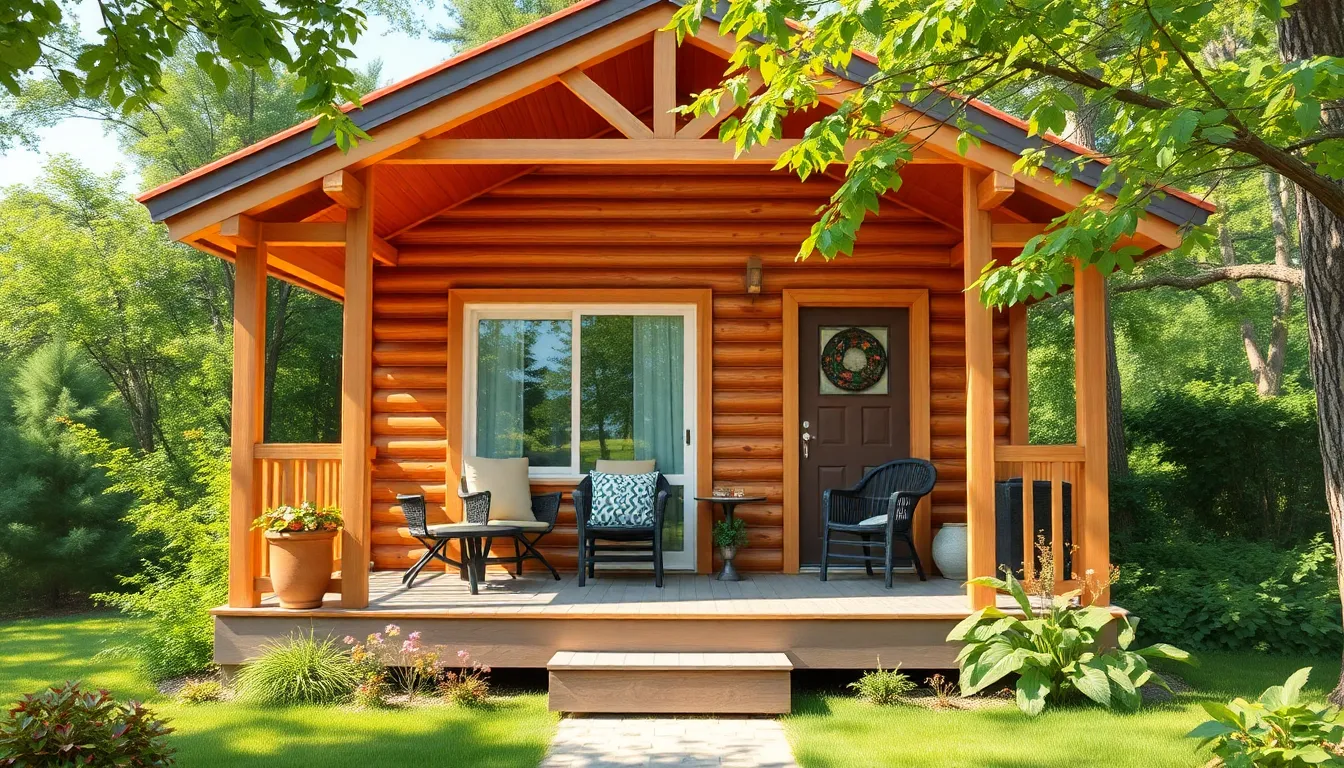Airbnb investment properties are the new gold rush, and savvy investors are cashing in faster than you can say “I’ll take a double shot of espresso.” Picture this: a cozy little space that not only pays your mortgage but also lets you sip piña coladas while the cash flows in. Sounds dreamy, right?
Table of Contents
ToggleUnderstanding Airbnb Investment Property
Airbnb investment property refers to real estate used for short-term rentals through platforms like Airbnb. Investors target these properties to generate income while capitalizing on the growing demand for vacation rentals.
What Is an Airbnb Investment Property?
An Airbnb investment property functions primarily as a short-term rental. Property owners furnish and market their spaces to attract guests looking for unique lodging experiences. Rental units can range from single rooms to entire homes. Choosing the right location significantly influences profitability, as high-demand areas often yield higher returns.
Benefits of Investing in Airbnb Properties
Investors gain various benefits from Airbnb properties. Flexibility stands out, allowing owners to block dates for personal use. Properties also often achieve higher nightly rates compared to long-term rentals, boosting overall income. Moreover, shorter rental periods provide opportunities for frequent bookings. Owners can deduct expenses such as maintenance and utilities, reducing taxable income. Engaging with guests frequently can lead to positive experiences, which often results in favorable reviews and repeat business.
Key Factors to Consider

Investing in Airbnb properties requires careful evaluation of several factors. Each factor influences the potential success of the investment.
Location and Market Demand
Location significantly affects profitability. Properties situated in popular tourist destinations often attract more bookings. Proximity to attractions, restaurants, and transportation enhances appeal. Analyze local market demand by reviewing occupancy rates and rental prices. High-demand areas yield better returns. Seasonal trends can also dictate occupancy, so consider peak times for each location.
Property Type and Amenities
Property type plays a crucial role in attracting guests. Unique offerings such as cozy cabins, modern apartments, or spacious homes can set a property apart. Amenities like fully equipped kitchens, Wi-Fi, and engaging outdoor spaces enhance guest satisfaction. Tailoring services to target audiences addresses their specific needs. Updating interiors and maintaining properties ensure higher booking rates.
Legal Regulations and Restrictions
Legal considerations are essential for successful Airbnb investments. Many cities enforce regulations governing short-term rentals. Identifying these rules helps prevent future complications. Licenses, permits, and local zoning laws often affect property operations. Staying informed about changes in legislation protects investments. Understanding homeowner association rules may also be necessary, as they can impose additional restrictions on short-term rentals.
Strategies for Successful Airbnb Investment
Understanding effective strategies helps maximize returns on Airbnb investments. Implementing the right approaches ensures a profitable venture.
Setting Competitive Pricing
Establishing competitive pricing remains crucial for attracting guests. Researching similar listings within the area provides insights into market rates. Analyzing seasonal demand allows for strategic adjustments, increasing bookings during peak times. Utilizing dynamic pricing tools can help automate adjustments based on occupancy trends. Regularly reviewing and tweaking pricing ensures alignment with current market conditions. Offering discounts for longer stays can also enhance appeal, encouraging guests to book extended vacations.
Effective Marketing Techniques
Employing proactive marketing techniques positions the property for success. Creating eye-catching listings with high-quality photos captures potential guests’ attention. Highlighting unique features and amenities differentiates the property from competitors. Leveraging social media platforms broadens reach and engages a wider audience. Collaborating with local businesses can generate cross-promotional opportunities, fostering mutual benefit. Investing in search engine optimization improves visibility in rental searches, attracting more guests naturally.
Enhancing Guest Experience
Enhancing the guest experience significantly impacts overall satisfaction. Providing thoughtful touches, such as welcome baskets or local guides, creates memorable stays. Responding promptly to inquiries and reviews demonstrates attentiveness and builds trust. Ensuring the property is meticulously clean and well-maintained sets a positive tone upon arrival. Offering flexible check-in and check-out times increases convenience for guests. Collecting feedback is essential for refining services, ensuring future improvements align with guest preferences.
Financial Considerations
Investing in an Airbnb property requires careful financial planning. Evaluating key financial aspects is crucial for maximizing investment success.
Initial Investment and Financing Options
Every investor must consider initial costs, including property price, closing costs, and furnishing expenses. Many investors finance purchases through conventional mortgages, which usually cover up to 80% of the property value. Additionally, some choose short-term rental loans designed specifically for this type of investment. Using personal savings or crowdfunding platforms also presents alternatives. Investors should assess their credit scores since those impact financing options and interest rates.
Expected Returns and Profitability
Expected returns play a vital role in the decision-making process. Investors often analyze local occupancy rates and average nightly rates in their target areas to project income accurately. A well-located property in a high-demand area can yield returns ranging from 8% to 15% annually. Seasonal trends significantly impact profitability, with summer months often generating higher income. Calculating total expenses and comparing them with estimated revenue ensures realistic financial projections.
Tax Implications of Airbnb Income
Understanding tax implications is essential for maximizing profits. Airbnb hosts often report rental income on their tax returns, impacting overall taxable income. Deductions for expenses directly related to the rental activity, such as mortgage interest, property management fees, and maintenance costs, can minimize tax liability. Local regulations may also affect tax responsibilities, including sales taxes on rental income. Consulting with a tax professional ensures compliance and optimal tax strategy.
Investing in Airbnb properties offers a unique opportunity for those looking to diversify their income streams. With the right location and effective management strategies, investors can enjoy a lucrative return on their investments. By understanding market demands and prioritizing guest satisfaction, they can create memorable experiences that lead to repeat business and positive reviews.
Navigating the financial landscape is essential for long-term success. By planning carefully and staying informed about legal regulations, investors can protect their assets while maximizing profitability. As the short-term rental market continues to evolve, those who adapt and innovate will thrive in this exciting venture.







